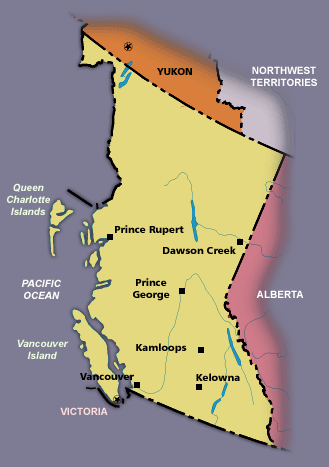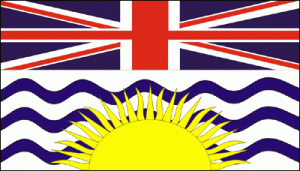British Columbia
Pray:
- Pray for the Aglow groups and leaders to be strengthened.
- Pray for all the resources and creativity needed to fulfill the intentions of God in the province of British Columbia.
- Pray for the Aglow prayer group in the Capital city.
- Pray for godly government leaders. Blessed is the nation whose God is The Lord, the people whom He has chosen for His own inheritance. Psalm 33:12
Proclaim:
- Arise, shine; for your light has come! And the glory of the LORD is risen upon you. For behold, the darkness shall cover the earth, and deep darkness the people; but the LORD will arise over you, and His glory will be seen upon you. Isaiah 60:1,2 (NKJV)
- iLift up your heads, O you gates! Lift up, you everlasting doors! And the King of glory shall come in. Who is this King of glory? The Lord of hosts, He is he King of glory. Psalm 24:9-10 (NKJV)
Interesting Facts About British Columbia
Government: The province of British Columbia has a parliamentary form of government. The chief executive of British Columbia is the lieutenant governor, who is appointed by the Canadian governor-general in council to serve a 5-year term.
The lieutenant governor, representing the British crown, holds a position that is largely honorary. The premier, the leader of the majority party, is the actual head of the provincial government and presides over the executive council. The Legislative Assembly contains 69 seats, including those of the premier and the members of the executive council. Members of the legislature are popularly elected to a 5-year term; however, the lieutenant governor, on the advice of the premier, may call for an election before the term has been completed.
The province of British Columbia is represented by 6 senators appointed by the Canadian governor-general in council, and by 34 members in the House of Commons popularly elected to serve terms of up to five years in the
Canadian Parliament.
People: About three fourths of BC’s population live in the southwestern corner of the province. The majority of B.C.’s inhabitants are of British origin, but the population includes immigrants and descendants of immigrants of all nationalities. More than 100,000 British Columbians are of Chinese origin, Vancouver has North America’s second-largest Chinese community. In addition, more than 60,000 of B.C. inhabitants are from India and over 16,000 from Japan. The Aboriginal population of British Columbia is growing in numbers and is over 200,000 people.
History: A large number of Indian Nations lived along the coast and in the interior of British Columbia before the arrival of the Europeans. The Haida, the Tsimshian, the Bella Coola, the Kwakiutl, the Nootka as well as the coast and interior Salish were all reliant on the rich resources of land and sea.
It has recently been speculated that Sir Francis Drake was the first European to visit what is now British Columbia in 1579. In the 18th century, the Spanish claimed the west coast from Mexico to Vancouver Island. At the same time, the Russians made an overlapping claim for control of the Pacific coast from Alaska to San Francisco.
In 1778 Capt. James Cook of the British Royal Navy landed on the west coast of what is now Vancouver Island. In 1792 Capt. George Vancouver took formal possession of the island. The following year Sir Alexander Mackenzie of the North West Company reached the Pacific coast by traveling overland. Soon thereafter the North West Company and the Hudson’s Bay Company set up a number of competing fur-trading posts and forts in the region. The two companies were combined in 1821 under the name of the Hudson’s Bay Company.
The Hudson’s Bay Company controlled the area west of the Rocky Mountains, including part of the Oregon Territory, until 1846. That year the boundary with the United States was established at the 49th parallel. In 1848 the mainland became a British colony. In1849 Vancouver Island became a British colony, administered by the Hudson’s Bay Company. Following the discovery of gold on the Fraser River in 1858 and later on its tributaries in the Cariboo district, thousands of prospectors poured into the region. To help maintain law and order, the British government established the colony of British Columbia the following year. In 1866, when the frenzy of the gold rush was over, the island and the mainland were united as a single colony and named British Columbia. Victoria was chosen as the colonial capital in 1868.
On July 20, 1871, British Columbia joined the new Dominion of Canada – on the condition that the federal government builds a transcontinental railroad. The Canadian Pacific Railway (CPR) reached Vancouver, in 1885.
Throughout the twentieth century British Columbia continued to grow with immigrants arriving from the rest of Canada and a substantial growth in Asian immigration after the 1960’s.
Interesting Facts information from the library.educationworld.net/canadafacts website. Read more about British Columbia


